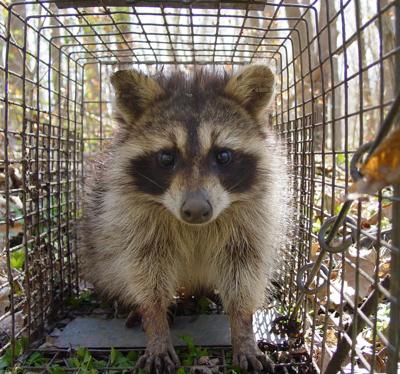A raccoon found in Aiken County could have exposed five people to rabies, according to a press release sent Wednesday from the Department of Health and Environmental Control.
The raccoon was trapped in Aiken County on June 19. It tested positive for rabies after being submitted to DHEC for testing on July 15.
The raccoon was the fifth animal found to be infected with rabies in Aiken County this year. South Carolina averages nearly 108 rabid animal cases per year.
"Rabies is usually transmitted through a bite which allows saliva from an infected animal to be introduced into the body of a person or another animal; however, saliva or neural tissue contact with open wounds or areas such as the eyes, nose or mouth could also potentially transmit rabies," said David Vaughan, director of DHEC's Onsite Wastewater, Rabies Prevention, and Enforcement Division, in a press release.
When suffering a bite from an animal, the injured area should be immediately washed with soap and water and disinfected. If there is a possibility the animal was carrying rabies, patients should seek help from a health care provider at once.
Anyone who believes they have been exposed to rabies is advised to call Aiken's Environmental Affairs Office at 803-642-1637. Normal business hours for the office at 8:30 a.m. to 5 p.m. Monday through Friday.
To report a potential rabies exposure on the weekends or during holidays, DHEC's after-hours service number is 888-847-0902.
State law requires pets to be up to date on their rabies vaccinations. According to DHEC, this is one of the easiest ways to stop the spread of the disease.
The raccoon was receiving treatment at a local wildlife facility.
"To reduce the risk of getting rabies, always give wild and stray animals their space," Vaughan said. "If you see an animal in need, avoid touching it and contact someone trained in handling animals, such as your local animal control officer or wildlife rehabilitator."
For more information on rabies, visit scdhec.gov.



